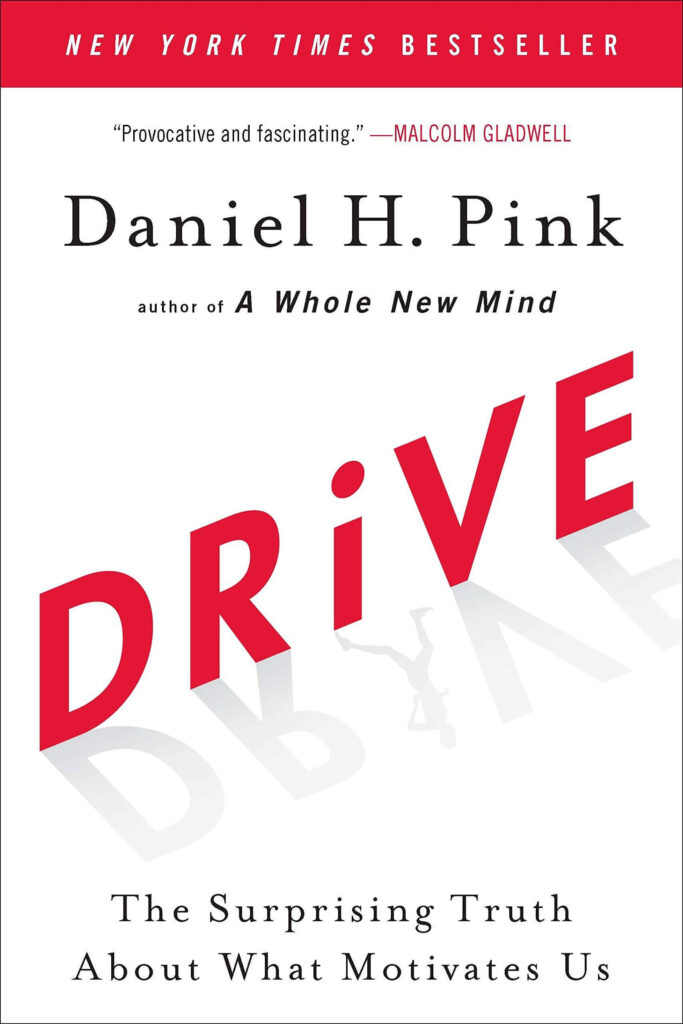
Intrinsic or extrinsic motivation? What is it that drives you? Do you strive at work because of the bonuses that are linked to your achievements or is it the joy of what you’re doing that keeps you going every day?
Pink explains the short-term boost rewards can deliver, but how the effect wears off and how it reduces longer-term motivation to continue a project. People have other, higher drives. And these drives could benefit business if business leaders respected them. Enjoyment-based intrinsic motivation, namely how creative a person feels when working on a project, is the strongest and most extensive driver.
Of course, the starting point for any discussion of motivation in the workplace is that people have to earn a living. Those are baseline rewards that need to be adequate and fair. If not, the focus will be on the unfairness of the situation and the anxiety of the circumstances. In that case, you’ll have very little motivation at all. But once we’ve passed that threshold, extrinsic rewards can achieve exactly the opposite of their intended aims. They can transform an interesting task into a drudge. They can turn play into work. Tangible awards tend to have a substantially negative effect on intrinsic motivation. When institutions focus on the short term and opt for controlling people’s behavior, they do considerable long-term damage. Neglecting the ingredients of genuine motivation—autonomy, mastery, and purpose—limits what each of us can achieve. Extrinsic rewards can promote bad behavior, create addiction, and encourage short-term thinking at the expense of the long view.
Are you in a leadership position and do you believe that extrinsic rewards are motivating your team members and driving your results? Read this book and explore the positive impact intrinsic motivation will bring to your team and business. You can only come out winning!
Terms & Conditions. © 2023 by V R B Management Consulting Co. LLC